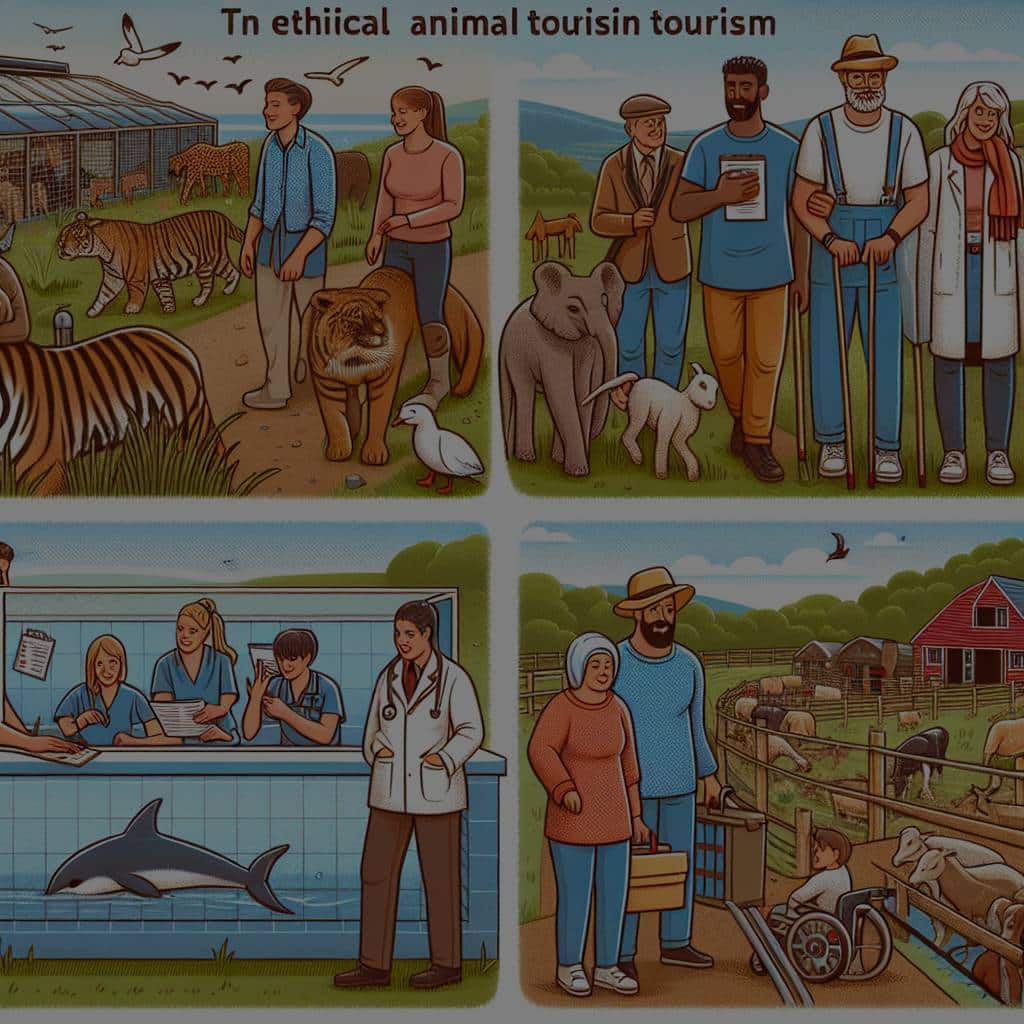What Are the Emerging Trends in Ethical Animal Tourism in the UK?

Animal tourism, a rising sector of the travel industry, has been gaining significant attention from the public and conservationists worldwide. This industry involves interactions between tourists and animals, ranging from wildlife watching tours to captive animal interactions. In the UK, animal tourism has always been a significant part of the tourism industry. However, recent years have seen a shift towards a more ethical approach. This trend stems from increasing concern about animal welfare, conservation of species, and the need to maintain the natural balance of the environment.
Animal Welfare and Ethical Tourism
One cannot discuss ethical animal tourism without addressing the issue of animal welfare. Animal welfare refers to the physical and mental well-being of animals, a subject that’s fast becoming a central concern in the tourism industry.
In parallel : How Can Mindfulness Practices Benefit UK Corporate Workers?
An ethical approach to animal tourism implies that tourism activities should be based on respecting and promoting animal health and welfare. It involves creating and implementing policies that protect animals from harm, stress, and exploitation. This concept is gaining popularity in the UK due to heightened public consciousness about animal welfare, and the realisation that tourism activities can have significant impacts, both positive and negative, on animals.
A study by Mintel revealed that 67% of Brits are willing to pay more for travel experiences where animal welfare is taken seriously. This growing concern for animal welfare has led to the development of new, more ethical animal tourism experiences.
Also to see : How to Create a Personalized Fitness Regimen in the UK Without Breaking the Bank?
Wildlife Tourism: A Move Towards Ethical Practices
Wildlife tourism, a key component of the animal tourism industry, is experiencing a shift towards ethical practices. This form of tourism involves observing and interacting with wild animals in their natural habitats. It’s an immersive, educational experience that allows people to appreciate the beauty and complexity of wildlife.
However, wildlife tourism has often been criticised for disrupting natural habitats and causing distress to animals. The emerging trend, therefore, is towards a more careful, respectful, and sustainable approach. Tour operators in the UK are increasingly adopting policies to minimise disturbances to wildlife, such as limiting the number of visitors, maintaining a safe distance from animals, and banning practices that could harm the animals or their habitats.
Ethical Policies in Captive Animal Tourism
Captive animal tourism is another domain that is seeing a significant shift. This sector includes zoos, aquariums, circuses, and any other form of entertainment that involves captive animals. While these venues have long been popular tourist attractions, they have also been subject to criticism due to concerns about animal welfare.
In response to these concerns, the industry is seeing a move towards a more ethical approach. Zoos and aquariums are working to improve living conditions for animals, providing environments that mimic natural habitats, and implementing stricter health and welfare standards. Some venues are even transitioning towards becoming conservation-focused, contributing to species survival instead of merely showcasing them.
Moreover, there’s a trend towards transparency. Venues are being encouraged to be more open about their animal welfare policies and practices, allowing visitors to make informed decisions about the places they choose to visit.
Ethical Eating: Animal-Based Food in the Tourism Industry
The trend towards ethical animal tourism isn’t just limited to interactions with animals. It also extends to the food served in the tourism industry. With a growing number of tourists, particularly in the UK, expressing concern about the welfare of animals used for food, there’s a marked shift towards more ethical eating.
This trend involves serving food that’s sourced from animals raised under humane conditions. It’s about promoting the consumption of animal-based food products that meet high animal welfare standards. Many hotels and restaurants are now offering local, organic, and free-range options on their menus.
The Role of Tourists in Promoting Ethical Animal Tourism
Finally, it’s worth recognising the pivotal role that you, the tourists, play in promoting ethical animal tourism. Your choices can directly impact the welfare of animals and the sustainability of the industry.
By choosing to patronise venues and activities that uphold stringent animal welfare standards, you can contribute to driving change across the industry. By expressing your concerns and expectations, you can motivate operators to adopt policies and practices that respect and protect animal welfare. And by spreading awareness about ethical animal tourism, you encourage others to follow suit.
In an era when ethics and conservation are increasingly important, the trend towards ethical animal tourism offers a promising path forward. It’s about ensuring that tourism activities are not just enjoyable for people, but also respectful and beneficial to animals and their environments.
Future Perspectives in Ethical Animal Tourism
The future of ethical animal tourism in the UK looks promising. As the trend continues to gain momentum, industry leaders are stepping up their efforts and implementing more robust animal welfare policies. The focus is on creating a balance that allows tourists to enjoy the beauty of wildlife while ensuring the health and welfare of the animals.
This shift is not only affecting wildlife tourism and captive animal tourism but is also influencing other sectors associated with the industry such as food and drink. The rise of ethical eating in the tourism industry is a testament to this. The demand for animal-based food that meets high welfare standards is on the rise, prompting many establishments to offer local, organic, and free-range options.
Google Scholar and other research databases are filled with studies that highlight the importance of ethical considerations in animal tourism. For instance, a research paper on whale sharks, a popular attraction in wildlife tourism, underpins the importance of respecting the natural behaviours of these magnificent creatures. It advocates for tourism practices that do not interfere with their feeding and mating habits.
There is also an increased emphasis on transparency. Venues that offer animal interactions are being encouraged to be transparent about their welfare policies and practices. This allows tourists to make informed decisions and shows a commitment to animal health and welfare.
Conclusion: The Role of Ethical Animal Tourism in Conservation
The emerging trends in ethical animal tourism are a positive step towards more sustainable and responsible tourism practices. The shift towards prioritising animal welfare marks a significant evolution in the tourism industry, reflecting the changing attitudes and values of society.
The emphasis on ethical practices is not merely about improving the experience for tourists; it’s about ensuring the long-term survival and well-being of wild animals. By limiting disturbances to wildlife, improving conditions for captive animals, and promoting ethical eating, the industry can contribute to conservation efforts on a broader scale.
Moreover, tourists themselves have a crucial role to play in this transformation. By choosing to support businesses that adhere to high animal welfare standards, tourists can directly impact the welfare of animals and the sustainability of the industry.
As ethical animal tourism continues to grow, it can serve as an effective tool for animal protection, conservation, and education. It’s a win-win situation – tourists get to enjoy unique, meaningful experiences, and at the same time, their patronage helps promote respect for animal rights and the preservation of the natural world.
The hope is that these trends will not only continue but will also inspire other countries to follow suit. After all, ensuring the health and welfare of animals is a global responsibility, one that extends far beyond the boundaries of a single nation or industry.
